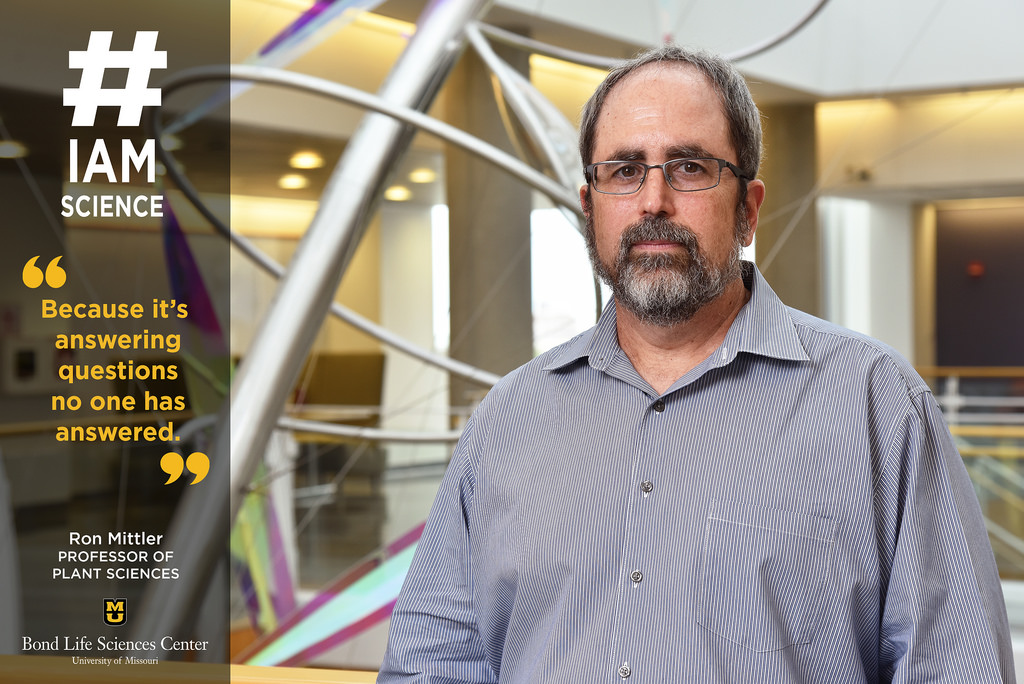Published on
By Erica Overfelt | Bond LSC
Ron Mittler always thought he would be a veterinarian, until he was exposed to the lab.
“I went to school to be a vet,” Mittler said. “I made the mistake of working in the lab to make money in the summer and I got hooked on research. I worked with plants and I realized it is the best job to have for me.”
That “mistake” has turned into a career of research and teaching in academia. The latest chapter in that journey started in July when Mittler joined Bond LSC as a professor of plant sciences at Mizzou.
Mittler’s research started with a focus on plants, digging into cell to cell signaling systems.
“I’m looking at how different cells within the same organism communicate with each other, how signals can be transferred and how plants respond to stress by activating cell-to-cell communication,” Mittler said. “For example, you take a plant and apply stress to one leaf to the entire plant will resist. But, I’m really interested in how plants acclimate to a combination of different stressors like drought and heat or heat and salinity together instead of looking at just one stressor.”
As Mittler has let the questions dictate his research, his foundation in plant signaling proteins has expanded beyond plants.
“I was only working on plants,” Mittler said. “I had a project discovering the unknown function of proteins in plants. About 20 percent of the proteins in our body, we don’t know what they do. My project was to try to figure out what all the proteins in plants do. It was very interesting to me, we found out a very close relative of a plant protein is in humans and accumulates cancer cells.”
This connection lends itself well to creating a bridge between his plant science research and research on cancer at MU’s School of Medicine. This potential collaboration and the opportunity to study plant stress in a crop setting swayed his decision to join MU. He comes from University of North Texas where he was a professor in their biological sciences department and earned his bachelors and masters in botany at Hebrew University. He then earned his Ph.D. in Biochemistry at Rutgers
A key focus of Mittler’s past work has been on reactive oxygen species (ROS). ROS can be found in biological processes in both plants and animals. Mittler shed significant light on the ROS wave, and the role the wave plays in stress response in plants. Essentially, it is a mechanism for cells to communicate where the ROS within a cell stimulate the cell next to it, creating a domino effect, or wave, that sends a message to nearby cells.
Mittler will be researching how these Reactive Oxygen Species and iron play a role in human disease.
“We are working on a group of proteins that regulate iron and Reactive Oxygen Species in cells,” Mittler said. “That is in relation to cancer or diabetes. Those proteins play a role in cancer cells. We are studying how and why these proteins are so important and trying to develop drugs that target these proteins.”
Questions may be the reason Mittler has taken so many turns in his research, but they are also what kept him motivated in research.
“It’s exciting, answering questions no one has answered,” Mittler said. “Like a little boy, it is tinkering with things and trying to figure out how things work. It is like detective work for me, seeing how plants work, how the body works.”
